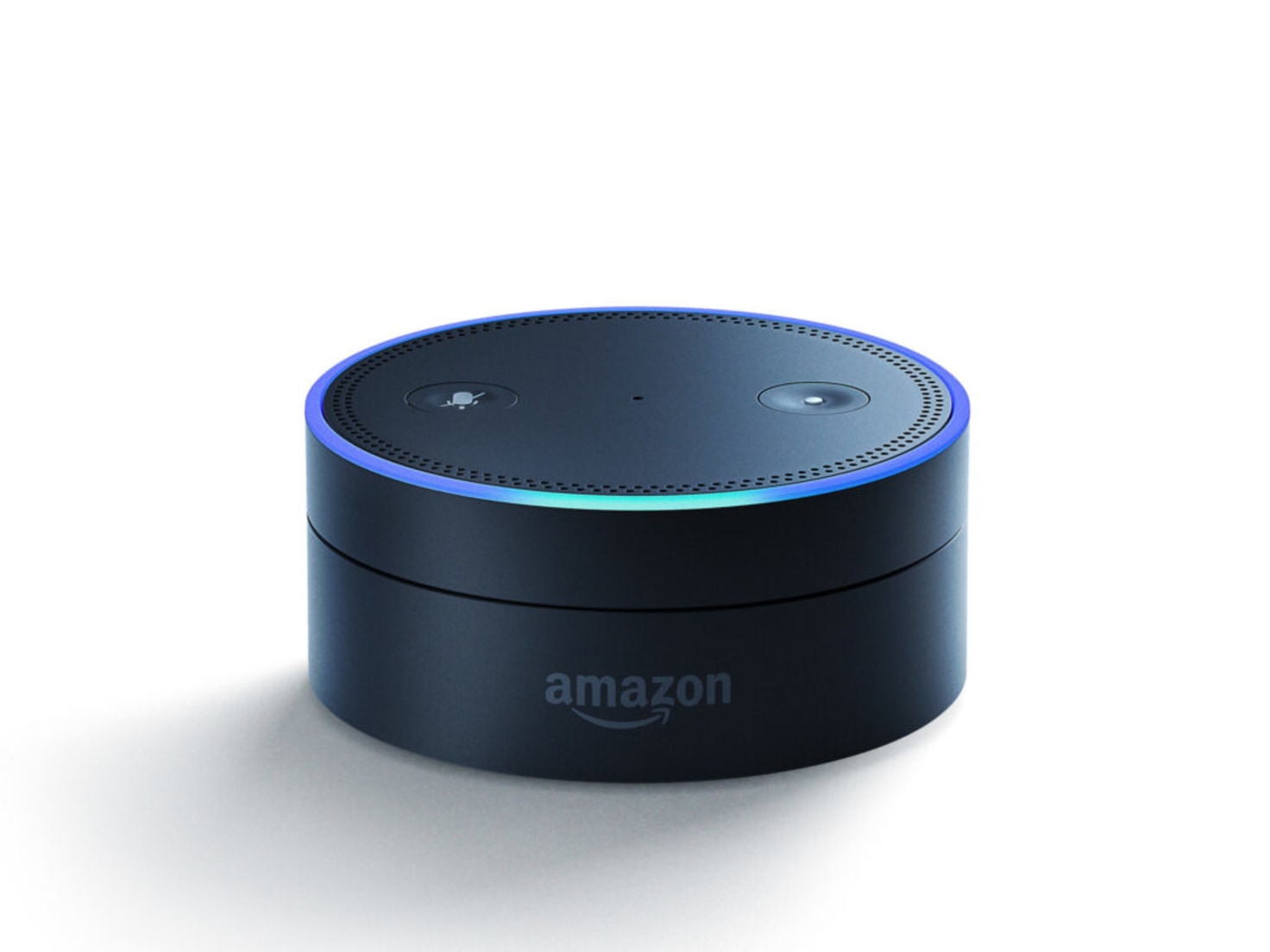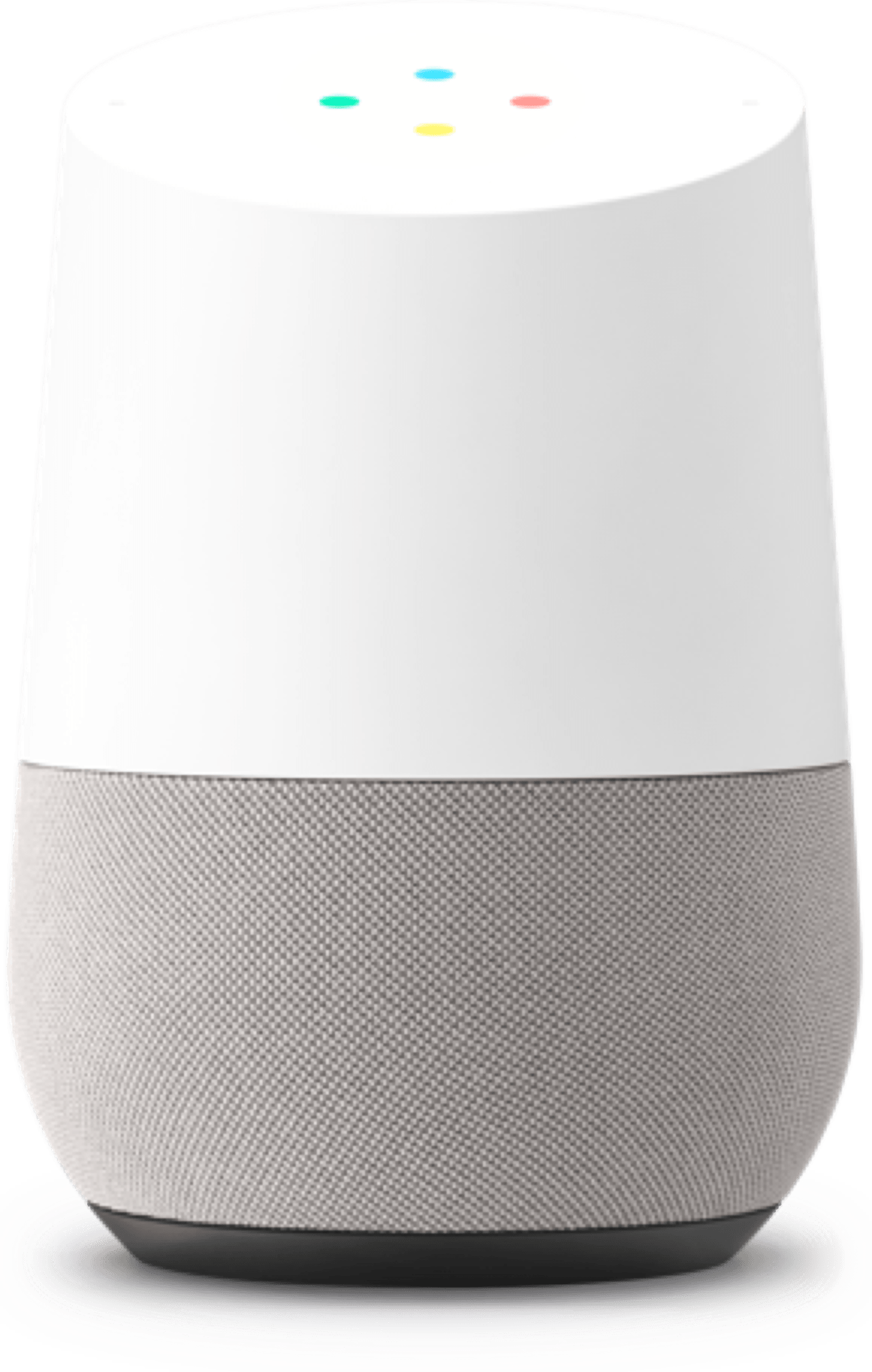AI assistants are out of the gate. Who will finish first?
Four tech giants, one race towards AI dominance. Apple, Google, Amazon, and Microsoft all have AI assistants promising to make our lives easier, more convenient, and hands-free. Siri, Alexa, Google Assistant, and Cortana all sound like life-changing products, and they automate various aspects of our lives with varying levels of success.
So, who has the best AI? Who is winning? Well, it's not quite so simple. So far, each AI is being developed to be better at certain things. Here, we review the capabilities and drawbacks of each AI assistant to gauge which is best at doing what.
Meet the contenders
Alexa

Built by: Amazon
Best at: Smarthome control, entertainment, online shopping, personal assistant
Bottom line: Amazon's Alexa powers their increasingly popular Echo line of "smart speakers" that has sold over five million units since 2014. Alexa is now one of the most widely used AI assistants on the market. Capable of doing a number of smart-home related tasks, playing music, and giving you the news, Alexa is fairly well-integrated. Smartly, Amazon has allowed developers to build Alexa Skills that make Alexa an open-source AI platform. This means that as more developers adopt the platform, it will grow more sophisticated over time.
2018 Update: Over the past two years, Alexa has grown due to an open-source platform and solid developer buy-in. Alexa, maybe more than any other on this list, has really captured the hearts and minds of developers everywhere. They've made it easy for Skill creators to create, publish and monetize skills so that buy-in is high. There are skills for finance, fitness, fun, and more, check out the Skill Store for the full list.
Overall, Alexa and the Amazon Echo is still a great choice, especially for those who own Fire TV devices or who shop using Amazon prime regularly.
Ok Google

Built by: Google
Best at: Entertainment, smarthome control, search, personal assistant
Bottom line: For those of us who live inside Google's increasingly fleshed-out device ecosystem, the Google Home and "Ok Google" feature in Android is seamless way to add voice control to all of your stuff. With Ok Google, you can control your Chromecast, stream music from Spotify, and manage Bluetooth-connected lightbulbs like the Philips Hue.
Ok Google is also a search assistant that works fairly well. Asking, "Ok Google: who was Isaac Asimov?" will yield results from Wikipedia. Other integrations are disappointingly slim at the moment, but support for other Google apps is coming soon. Because of this, Alexa takes the win in the early stages of this race.
2018 Update: Google Home combined with Google assistant makes a formidable home-control device, definitely comparable to Alexa in that arena. I've been using a Google Home in combination with IFTTT and a few "smart outlets" from Amazon to accomplish a wide array of smart home-related tasks.
Where Google assistant lags behind Alexa is in the open-source department. While Google Assistant integrates with a number of different tools, and has rolled out the Actions platform, it hasn't quite generated the same developer loyalty as Alexa. A lot of things can be "hacked" together with a bit of know-how, but native integrations leave something to be desired. You may also like: Can Chatty AI Replace the Screen?
Siri

Built by: Apple
Best at: iPhone control, search
Bottom line: Siri is the original AI assistant, which should put it ahead of the others. However, Apple's iPhone-powered AI hasn't expanded its functionality all that much since its inception in 2011. SiriKit gives developers a way to add integrations with their iPhone apps, but the list of services is still rather limited. Apple will need to give Siri a boost soon to keep pace with it's competitors.
2018 Update: Siri has gotten some updates, though, including translation (very useful for those rocking Apple's Airpods), and it's cool that you can control the iPhone in your pocket with the headphones in your noggin (not that Google Assistant can't do that too). Apple also released the Home Pod last year to lukewarm reviews.
The Home Pod, like much of the AI products from Apple still seems to be mirroring or matching competitors products, and that's in tune with their strategy of incremental adoption. It represents a fundamental difference in how these companies innovate, as Google and Amazon seem to fly forward while Apple approaches cautiously from behind, (reaping huge profits their trademark high prices). Siri still seems "dumb" though, compared to competitors.
Cortana

Built by: Microsoft
Best at: Personal assistant
Bottom Line: Microsoft's Cortana is a bit of a dark horse in this race, and a late entry at that. Cortana is most useful as a Siri counterpart for Windows users. Cortana, like Siri, is limited in scope. It is however, portable to all kinds of devices as well as the Edge browser, making it useful as a cross-platform voice assistant. It can give you Foursquare recommendations, flip a coin, and control LIFX lightbulbs, but the functionality of the Halo-inspired AI is currently a bit lacking.
2018 Update: Cortana acts as a solid voice-control for Windows, and couples tightly with Microsoft's 360 suite. I say that as someone who went through the tedious process of disabling Cortana completely. Cortana works as expected, but if you prefer the old-fashioned, and (admittedly still useless) Windows search, you'll have to make edits to the registry.
Still, Microsoft plans to roll out an integration with Amazon Alexa sometime this year. Why build your own service when you can latch onto somebody else's? Seems like a concession from Microsoft, although I don't see why these bots shouldn't all be linking up and communicating in the first place.
The fact is, none of these AIs has reached "Jarvis-level" functionality. The promise is that, as these companies get better at building and selling AI and peripheral devices, they will become more personalized and more useful.
For now, these AIs are being tested primarily in the home. Once AI assistants reach enterprise-level usefulness, the race will really heat up. Imagine an entire office building controlled using voice ("Alexa, turn off the lights on the third floor and close the blinds"). That's when the profits will really start rolling in for AI providers, and their services will become an essential part of our lives.


